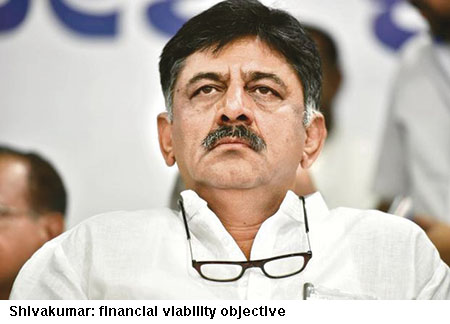Karnataka Overdue fees hike
 The southern state of Karnataka which hosts the country’s largest number of medical colleges (51), is set to introduce a 15 percent reserved quota for non-resident Indian (NRI) students — following the example of private medical colleges — in its 17 government medical colleges. Thus far, government medical colleges only admitted meritorious students from the state (85 percent) who top the National Eligibility-cum-Entrance Test (NEET) with an remaining 15 percent drawn from an all-India quota. The proposed reservation will create a cross-subsidy model.
The southern state of Karnataka which hosts the country’s largest number of medical colleges (51), is set to introduce a 15 percent reserved quota for non-resident Indian (NRI) students — following the example of private medical colleges — in its 17 government medical colleges. Thus far, government medical colleges only admitted meritorious students from the state (85 percent) who top the National Eligibility-cum-Entrance Test (NEET) with an remaining 15 percent drawn from an all-India quota. The proposed reservation will create a cross-subsidy model.
According to a statement made in the legislative assembly on December 18 by D.K. Shivakumar, medical education minister, the annual tuition fee of government medical colleges will be raised from the current rock-bottom Rs.16,400 to Rs.50,000 per year for the undergrad MBBS programme and from Rs.50,000 to Rs.3 lakh for the postgrad MD programme.
Explaining the rationale of the NRI quota, Shivakumar, also founder and chairman of the Bangalore-based DKS Trust which has promoted four private engineering, nursing and business management colleges and two schools statewide, said the NRI quota and tuition fee increases have become “inevitable to make the colleges financially viable”. Though the state government is yet to finalise the tuition fee for the NRI quota in government colleges, private medical colleges charge NRI students Rs.28-40 lakh per annum.
For more than a decade, the annual tuition fees in the state’s government medical colleges have been stagnant and perhaps the lowest in India. In the neighbouring state of Maharashtra which hosts the second largest number of medical colleges, government college fees are Rs.60,000-70,000 per year for the MBBS programme.
“The annual tuition fee fixed by the state government for Bangalore Medical College and Research Institute (BMCRI) has been stagnant at a paltry Rs.16,400 for over a decade. With rising staff salaries and maintenance costs, our annual allocation of Rs.255.61 crore to educate 1,250 undergrad MBBS and 747 postgrad students makes it impossible to expand capacity. Therefore, the high fees charged to students admitted under the NRI quota will prove useful,” says Dr. Satish H.S, director-cum-dean of BMCRI, Karnataka’s #1 government medical college.
There is general acceptance within the state’s parent and student communities that the proposed 67 percent tuition fees hike in government medical colleges is justified as private medical colleges levy a relatively massive annual tuition fee of Rs.6.32 lakh per annum, under the management quota (45 percent) and Rs.77,000 p.a under the government quota (40 percent). However, introduction of the NRI quota has aroused protests because the number of merit seats will decline by 15 percent.
The Karnataka Medical Students and Young Doctors Association (KMSYDA), which claims a membership of 5,000 students and recently graduated doctors, has voiced concern over the proposal. “The introduction of NRI quotas in government colleges will deprive poor but meritorious students of 15 percent of the 20,000 seats in the state’s 17 government medical colleges. Karnataka, which is already confronted with an acute shortage of doctors in government hospitals, particularly in rural areas, will suffer further because NRI students leave the state after graduation. This will accentuate the shortage of government doctors,” says Dr. Jyothi Rame Gowda, general secretary of KMSYDA.
But despite such complaints, there’s general acceptance that tuition fees in Karnataka’s medical colleges were pegged too low. The higher fees paid by merit students and NRI students will undoubtedly improve their financial condition and reduce their abject dependence on invariably tardy government handouts which have contributed to their dilapidated infrastructure and facilities.
Shruti Susan Ullas (Bangalore)














Add comment